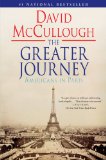Summary | Excerpt | Reviews | Beyond the book | Read-Alikes | Genres & Themes | Author Bio

The Men Who Invented the Constitution
by David O. StewartWidely compared to Catherine Drinker
Bowen's
Miracle at Philadelphia (1966), considered
by many to be the classic work on the American
constitution, The Summer of 1787's
fly-on-the-wall narrative style stands up to the
comparison in the opinion of most reviewers.
Like Bowen, Stewart focuses solely on the four
summer months during which the bulk of the
Constitution was framed and does not cover the State
ratification process or the first Federal Congress,
which established a number of elements including The
Bill of Rights. A couple of reviewers point to this
as a limitation of The Summer of 1787, but
this reviewer thinks that Stewart is right to focus
on just these four sweltering months.
The Summer of 1787 is analogous to to the closed
world of a "country house mystery", if the author
had broken out of the confines of this narrow place
and time in the final chapters to cover the
ratification and amendment process, not only would
the book be in danger of losing its narrative power
but the question would be when to stop? After all,
the Constitution is a living, breathing document
that has been amended twenty-seven times to date and
has withstood somewhere in the region of 10,000
proposed amendments. The full story of the
Constitution could (and hopefully will) run and run
for a long time to come, so focusing on just those
first four months seems admirably sensible!
Like James L Swanson's
Manhunt, Stewart's emphasis is on the day
to day narrative, not on analysis. He covers the
Constitutional Convention in chronological order,
grouping particular events and stages into
individual chapters. What clearly comes across is
the enormity of the task faced by 55 men of diverse
opinion and ability to find common ground for 13
states, each with their own vested interests already
established in the flawed Articles of Confederation.
We see the tensions and difficult compromises, such
as slavery and the three-fifths rule; the acute
minds offering clarity, but also the more obtuse or
just plain belligerent countering with confusion.
What comes across most clearly is that the
Constitution is not a set-in-stone document handed
down to us by a group of demigods, but a framework
created by men who, through usually thoughtful but
necessarily rushed debate, found a compromise
acceptable to the majority. The creation, contents
and ratification of this imperfect but surprisingly
durable "child of lofty idealism and rough political
bargains" was far from a foregone conclusion; and,
by extension, it's continuation should never be
taken for granted either. The Constitution
needs to be read, questioned, defended and amended
as necessary for as long as Americans wish to live
as a democracy.
![]() This review was originally published in The BookBrowse Review in May 2007, and has been updated for the
June 2008 edition.
Click here to go to this issue.
This review was originally published in The BookBrowse Review in May 2007, and has been updated for the
June 2008 edition.
Click here to go to this issue.

If you liked The Summer of 1787, try these:

by John E. Wideman
Published 2019
With characters ranging from everyday Americans to Jean-Michel Basquiat to Nat Turner, American Histories is a journey through time, experience, and the soul of our country.

by David McCullough
Published 2012
The Greater Journey is the enthralling, inspiring - and until now, untold - story of the adventurous American artists, writers, doctors, politicians, architects, and others of high aspiration who set off for Paris in the years between 1830 and 1900, ambitious to excel in their work.
Your guide toexceptional books
BookBrowse seeks out and recommends the best in contemporary fiction and nonfiction—books that not only engage and entertain but also deepen our understanding of ourselves and the world around us.